| Mittwoch, 8. Mai 2013 |

|

|
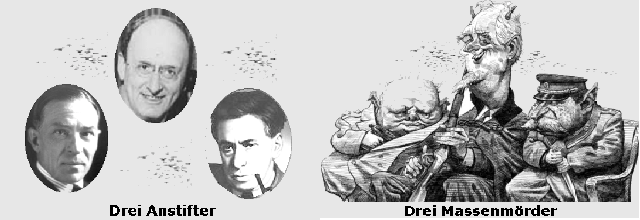
|
|
Mr. Douglas has written a very informative book on a subject that is too often neglected by historians of Europe. This subject is the expulsion of fourteen million ethnic Germans from mainly Poland and Czechoslovakia, but also from other East European countries like Yugoslavia after World War II. The expellees were expelled to the remaining parts of Germany that had been heavily damaged after the war and had huge problems in feeding and housing their populations. In the case of Poland most of the persons expelled came from land originally German that was transferred to Poland in the Yalta and Potsdam settlements during and after World War II. These expellees in particular can say we did not cross the border but the border crossed us. Similarly in Czechoslovakia long time German residents in the Sudeten mountains were transferred after World War I against their will to Czechoslovak sovereignty. The treatment of the German expellees was horrendous. The expellees were first decreed to have lost their nationality and civil rights. They were viciously discriminated against in food rations and almost every other social economic area. They were often placed in camps that provided little food, starvation rations, inadequate or no medical care and housed in overcrowded rooms on straw or no bedding. Starvation and disease took a tremendous toll of human life. After weeks of months or years as slave labor in the camps the would be expellees were packed onto freight cars for a long ride to Germany that could last for weeks. During this time expellees continued to suffer to disease and starvation that caused many deaths. When arriving in Germany their weakened condition in a devastated land caused more deaths. One of the more accurate estimates of the number of expellee deaths is 2.1 million. Mr. Douglas differs from other chronicles of the expulsion in that he uses Red Cross reports and government and diplomatic records as his references, not the stories of survivors. Yet the story is the same. Red Cross and government records tell the same story as the expellees who survived. In the book Mr. Douglas provides a detailed view of the organization, or often lack thereof, of the expulsions, and how they were carried out. He provides a detailed biography and description of the original ethnic cleanser Edvard Benes, the President of Czechoslovakia and how he cleverly manipulated Western public opinion to enable him to carry out the expulsion project. Mr. Douglas also gives the reader an oversight of the other expulsion personalities and demonstrates the human misery they caused. He extends the story to the present day to detail how the expulsions were treated or neglected by the historians, educational institutions, and the media in both Western and East European countries. This book is a must. The writing is good and clear. The detail, footnotes, and bibliography are generally excellent. Any person interested in human rights and/or European history would not want to miss this work. ABCD |
 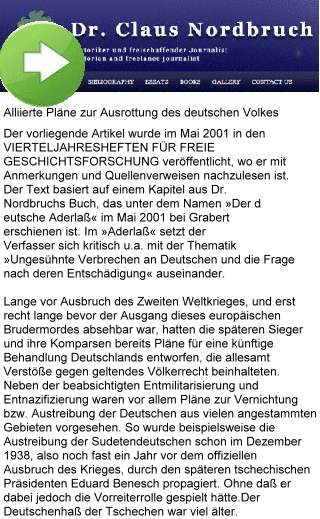 |
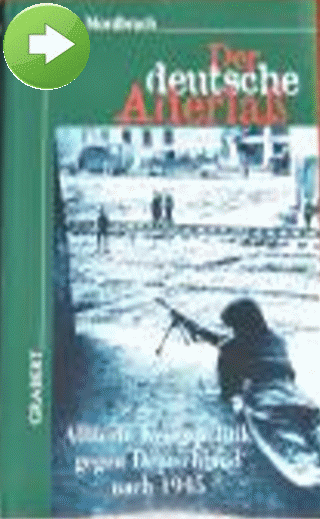 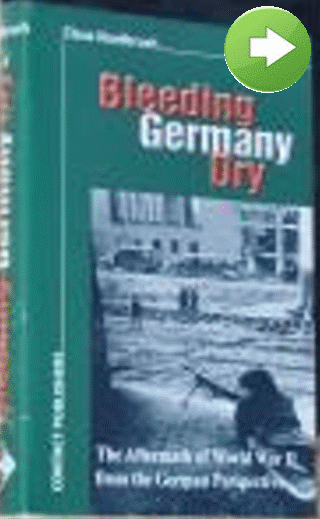 |
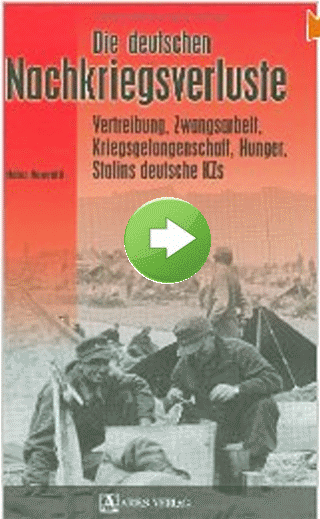  |
           |
|
Register: |
|
Email:
|



